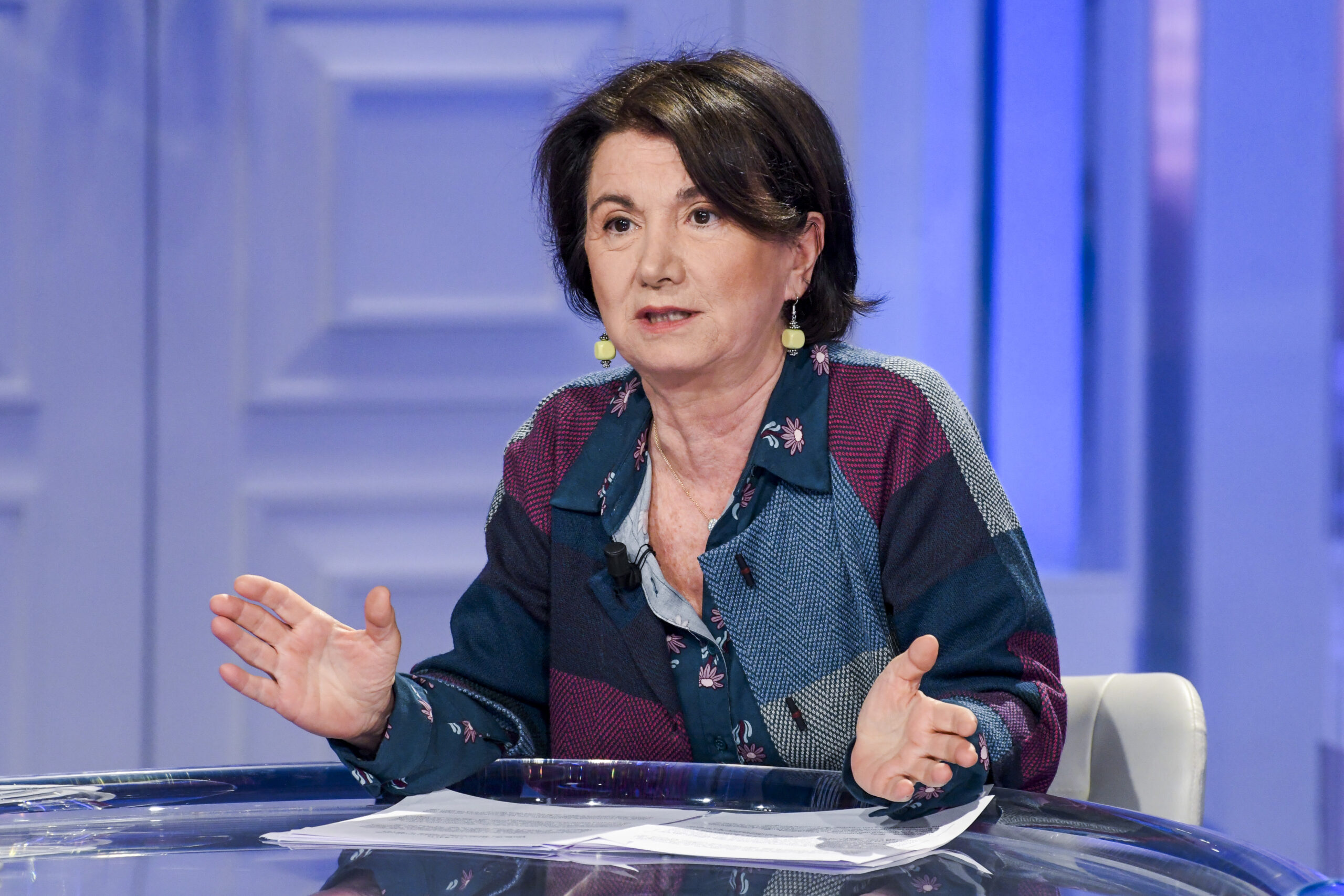Saviano, Lagioia and the sinister double standards against Eugenia Roccella

From the book fair to transhumanism. What happened in Turin against Minister Eugenia Roccella and how progressive intellectuals and journalistic signatures commented on the crime. The italics of Battista Falconi
The word narrative is undoubtedly abused but it renders well an important mechanism of our societies, which are characterized by confusing information and communication flows, in which knowing how to state clearly a piece of news and a position becomes as important as having it. There are no longer more or less packaged information packages and the very concept of mainstream is failing, given the proliferation of messages of dubious correctness in which sources and recipients tend to agree.
In this chaos, defined as "infodemic", political communication is certainly no exception, above all because it is characterized by a very strong ideological influence, which tends to distort the representation of facts in a systematic way. A tendency that is still justified with the principle of freedom of opinion but which, in reality, contributes to generating a bewilderment in citizens which represents a democratic damage far greater than the benefit of the possibility of expressing one's thoughts always, however and everywhere (which ends up thus to become a mere verbal outburst, allowing those who hold power to keep it without too much concern).
Going down to the concrete, let's start with a quote from Maurizio Gasparri, a member of Forza Italia prodigal of declarations which in this case – the protesters who prevented Minister Roccella from speaking at the Book Fair – unfortunately do not exaggerate when they refer to a dismal precedent: that of Alvaro Lojacono who, says Gasparri, began by preventing those who were not from the left from speaking, continued by killing the right-wing student Mikis Mantakas in Piazza Risorgimento in Rome and ended up in the Red Brigades. Naturally there is no automatism for which the protesters of the Turin Show must end up in the armed struggle, we are indeed sure that it will not happen. But the context justifying and double standard, the flood of propaganda statements that accompanied the episode, this indeed recalls the years of lead with their supply chain between the verbal violence of some exaggerated, the complicit attitude of the parlors and intellectuals who commented without getting their hands dirty in the first person and then the delirious drift of those who beat and shot.
As is known, Minister Eugenia Roccella had managed the attempt to dispute it very well, allowing the press release to be read and then asking to comment on it together. But this was not enough to prevent the clamors forcing her and the lawyer Bernardini to leave the Salone, while the outgoing director Nicola Lagioia not only did nothing to restore the injured right but also distanced himself, saying that the service is not his responsibility of order. Accused at that point by the deputy of the Brothers of Italy Augusta Montaruli, who expressed relief for his already planned replacement, he even tried to equate the two facts, in a truly inadmissible way that found a broad progressive consensus. So that today – if one reads the newspaper La Stampa , which being from Turin gave ample space to the story – one gets the impression that the responsibilities are on the opposite side: with Saviano speaking of a "provocateur's right wing", Lagioia of "violence against me” and Andrea Malaguti who, in a comment, walks on eggshells for a while but it is clear that he is much more annoyed by the Fdi deputy who shouts at the outgoing director “the worst things” (text).
Yes, there is frankly something sinister about this way of representing things.
The theme of Roccella's book, moreover, is already conditioned by a deformed representation in which – to quote the name of the disputed fair held in Milan, "Wish for a baby" – the procreation of a child becomes a desire to be satisfied, in defiance of nature, resorting to available technologies, according to a decidedly materialistic and consumerist logic. This debate on the general trend towards freedom, or rather the desire to have children – in which there is no place for very serious arguments such as the decline in desire and sexual activity that distinguishes the new generations, on which other studies and essays by recent – intersects with what Gianluigi Paragone sul Tempo calls “transhumanism”, in reference to the no less relevant question of artificial intelligence and the possible replacement, or downsizing, of many human activities, including writing. A topic on which Monsignor Domenico Pompili, the bishop of Verona and very expert in social communication, has also spread, inviting in Avvenire to speak more from the heart and less with cell phones. In short, we reiterate, there is an evolution of a technological nature that questions the relationships between human beings as we have conceived them up to now. On the other hand, we have all had the shocking experience of pandemic isolation and we know how much it has put our emotional and affective certainties in crisis. Here, in this context of depersonalization, the only thing we neither need nor miss are the "old" tools of violence, aggression and, almost even worse, the double standard that justifies them.
This is a machine translation from Italian language of a post published on Start Magazine at the URL https://www.startmag.it/mondo/saviano-lagioia-e-i-sinistri-doppiopesismi-contro-eugenia-roccella/ on Sun, 21 May 2023 10:27:16 +0000.
